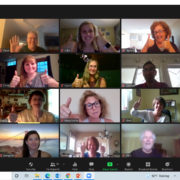Keeping the Child’s Well-Being Front and Center
 Name:
Name:
Ken Gifford
Town:
Manchester, NH
How long have you been a CASA?
I accepted my 1st case in July 2014 on the last day of my CASA training.
How many cases and how many children have you advocated for?
I’ve been appointed to 4 cases as a CASA-GAL. Each case had 1 child.
Why did you decide to become a CASA and why do you continue to give your time to CASA?
Jim Polcari, a Massachusetts attorney and advocate for abused/neglected children, has been my friend for a long time. Jim’s life of selfless, caring, child-focused advocacy inspired me to become a CASA-GAL.
Time steadily creeps forward while NH Courts and DCYF attempt to preserve the family unit and rehabilitate adults who inflicted physical or mental injury, sexual abuse, exploitation or neglect upon a child. While this is occurring, the development and maturation of the child-victim is also occurring. When preservation of the family unit and rehabilitation of adults trumps the day-to-day well being of harmed children, an opportunity exists for CASA-GAL volunteers to intervene and make a positive contribution on behalf the child. The child’s biological clock and the child’s development and maturation don’t pause and take a break while the child’s parents, the Court and DCYF attempt to address the parent’s problem(s). CASA-GALs keep the children’s well being in the fore.
Tell us about a learning experience you’ve had as a CASA.
Parents suffering from mental illness, substance abuse and, or alcoholism are often depressed. They face lots of other challenges in their lives. Although each individual’s story and journey is unique, they all share a love for their children that is incredibly powerful. Sometimes a parent’s love and affection for a child is so strong it prevents the parent from being able to recognize and acknowledge their own responsibility in the situation that resulted in an abuse/neglect charge being filed against them. Most parents in the cases I’ve had told me that they love their children more than anything else in the world, including themselves. I’ve learned that it’s necessary to verify information I’m told by parents who don’t accept responsibility for their actions instead of simply accepting it as being truthful because they insist their love of their children implies their version(s) of the story must be correct.
Share a memorable outcome from one of your cases, or, if your case hasn’t closed yet, something positive you’ve seen come from your case so far.
A middle-school student in an educational neglect case was suffering from infected gums and periodontal disease, which interfered with his ability to interact and make friends with his peers and contributed to an excessive amount of truancy and absenteeism. DCYF and the mother’s attorney presented arguments that the child’s dental problems were being addressed and weren’t relevant in an educational neglect case. We (CASA of NH) prevailed in arguing that the child was not receiving the care he needed and played a role in helping him have his periodontal disease treated. This improved the child’s social life and contributed to increased school participation. It also helped improve his mother’s relationship with him and the school.
What would you say to encourage someone who has been thinking about becoming an advocate?
NH children didn’t start to be abused and neglected as a result of the opioid crisis. The opioid crisis has simply exacerbated the abuse and neglect of children in NH. The parents in these cases struggle to care for themselves. In these situations their abused and neglected children are innocent victims. CASA-GAL volunteers with the support and assistance of CASA of NH help inform the Courts about what’s actually happening in the case with an emphasis on the children’s well being. Although these cases are about the children most of the time the focus in a court hearing is on the rehabilitation of the parents and the parent’s participation and progress. As a CASA-GAL you try to help the court and DCYF stay focused on the child to help prevent a loss of big picture.




